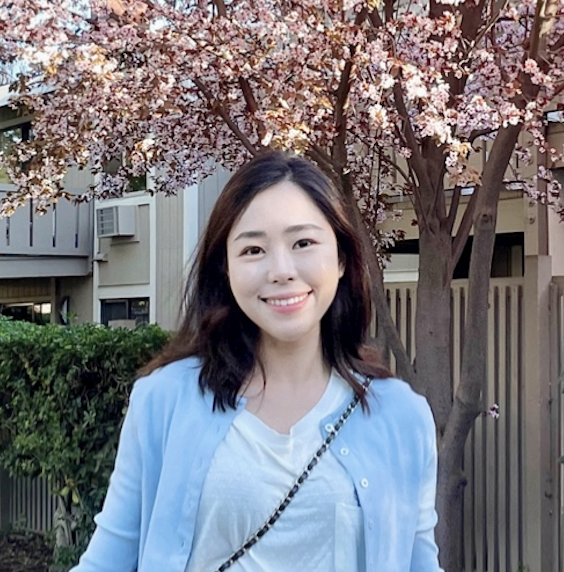Sitemap
A list of all the posts and pages found on the site. For you robots out there is an XML version available for digesting as well.
Pages
👋 Hello, this is Jessie!
About me
Web Programming
Undergraduate course, UC Davis, Computer Science Department, 2021
Posts
Future Blog Post
Published:
This post will show up by default. To disable scheduling of future posts, edit config.yml and set future: false.
Blog Post number 4
Published:
This is a sample blog post. Lorem ipsum I can’t remember the rest of lorem ipsum and don’t have an internet connection right now. Testing testing testing this blog post. Blog posts are cool.
Blog Post number 3
Published:
This is a sample blog post. Lorem ipsum I can’t remember the rest of lorem ipsum and don’t have an internet connection right now. Testing testing testing this blog post. Blog posts are cool.
Blog Post number 2
Published:
This is a sample blog post. Lorem ipsum I can’t remember the rest of lorem ipsum and don’t have an internet connection right now. Testing testing testing this blog post. Blog posts are cool.
Blog Post number 1
Published:
This is a sample blog post. Lorem ipsum I can’t remember the rest of lorem ipsum and don’t have an internet connection right now. Testing testing testing this blog post. Blog posts are cool.
portfolio
EEG and Human Perceived Fairness in the Workload Division Process
Evaluate the impact of UI designs on user cognitive load and engagement in the workload division process with electroencephalogram (EEG).
Fair Workload Division Dashboard
Create a group tetris game that stimulates how people collaborate in a group, then design a dashboard that supports fair work assignments.
Balls and Bins: Fair Redistricting
We modify a redistricting game introduced by Mixon and Villar, and named it as “balls and bins”. We then discuss what strategy the minority should play to win the most as they should.
publications
Reshaping Group Life: A Transparent and Interpretable Reward Model to Enhance Fairness in Groups
Published in , 2023
Groups can do better than individuals through two mechanisms: aggregation and synergy. Aggregation means bringing knowledge together, and synergy means increasing the effectiveness that comes about through joint action or cooperation. However, we usually measure a group’s effectiveness by productivity outcome but disregard the other critical aspects, specifically the experiences and sustainability of the team: does the group member feel fair? Without the sense of fairness, group members do not have a clear metric on how their contributions lead to rewards, and may gradually lose the motivation to engage and contribute. Groups can suffer both in terms of aggregation and synergy. Our goal in this work-in-progress paper is to formulate a user-interpretable and -transparent reward model to operationalize fairness in groups. We apply the model to design a workload tracking dashboard for group members to view and negotiate individual workloads transparently, and to improve fairness both in group procedure and outcome.
Recommended citation: Reshaping Group Life: A Transparent and Interpretable Reward Model to Enhance Fairness in Groups Jia-Wei Liang, Hao-Chuan Wang. Conference on Collaboration Technologies and Social Computing, Springer Nature Switzerland, 209-216, 2023.
Download Paper
How People Initiate and Respond to Discussions Around Online Community Norms: A Preliminary Analysis on Meta Stack Overflow Discussions
Published in , 2023
Supporting norms-related discussions can aid people in understanding and abiding by ambiguous norms in large-scale online communities. Yet, how social and linguistic factors, such as the identities of interlocutors and the language framing of posts, can influence discussions around norms, is underexplored. In this work, we performed a preliminary analysis based on a dataset containing 123 question threads on Meta Stack Overflow, a site for discussions of the workings and policies of Stack Overflow, to understand how people initiate and respond to norms-related discussions. Results revealed that question posts with different levels of personal relatedness and question specificity have significantly different sentiments, and they also draw comments with diverged sentiments. We present implications and directions of future work based on our findings.
Recommended citation: Jingchao Fang, Jia-Wei Liang, and Hao-Chuan Wang. 2023. How People Initiate and Respond to Discussions Around Online Community Norms: A Preliminary Analysis on Meta Stack Overflow Discussions. In Companion Publication of the 2023 Conference on Computer Supported Cooperative Work and Social Computing (CSCW '23 Companion). Association for Computing Machinery, New York, NY, USA, 221–225.
Download Paper
The Fairness of Redistricting Ghost
Published in , 2024
We explore the fairness of a redistricting game introduced by Mixon and Villar, which provides a twoparty protocol for dividing a state into electoral districts, without the participation of an independent authority. We analyze the game in an abstract setting that ignores the geographic distribution of voters and assumes that voter preferences are fixed and known. We show that the minority player can always win at least p−1 districts, where p is proportional to the percentage of minority voters. We give an upper bound on the number of districts won by the minority based on a “cracking” strategy for the majority.
Recommended citation: Jia-Wei Liang, Nina Amenta. (2024). arXiv preprint arXiv:2401.07440, 2024.
Download Paper
talks
Talk 1 on Relevant Topic in Your Field
Published:
This is a description of your talk, which is a markdown files that can be all markdown-ified like any other post. Yay markdown!
Conference Proceeding talk 3 on Relevant Topic in Your Field
Published:
This is a description of your conference proceedings talk, note the different field in type. You can put anything in this field.
teaching
Web Programming
Undergraduate course, UC Davis, Computer Science Department, 2021
Human-Computer Interaction
Undergraduate course, UC Davis, Computer Science Department, 2023
Algorithm
Undergraduate course, UC Davis, Computer Science Department, 2024
